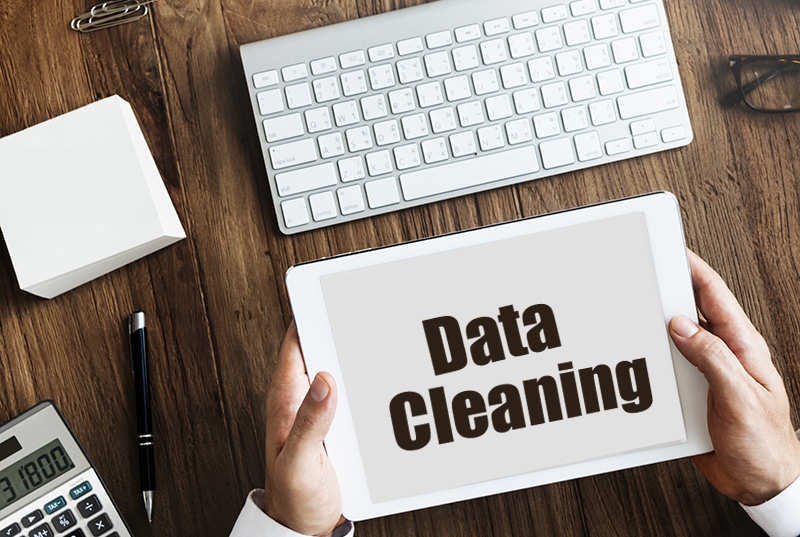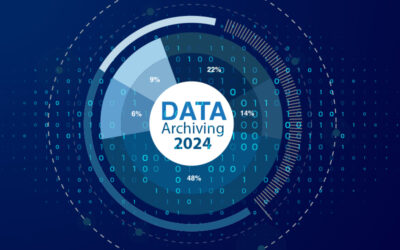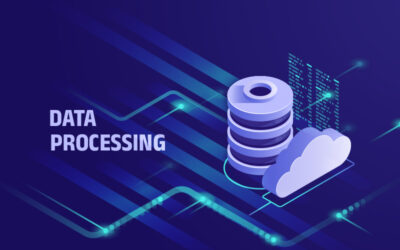In today’s digital age, data is king. Businesses need accurate and reliable data to make informed decisions, gain insights into their customers’ behavior, and improve their overall performance. However, while data analysis and management are crucial for enhancing overall business operations, handling huge volumes of unstructured data can be a a tedious and time-consuming task. That’s where data cleansing comes in. Data cleansing is the process of identifying and correcting or removing inaccuracies and inconsistencies in data sets. Today, businesses can rely on data cleansing companies to ensure that their data is reliable, relevant and accurate, which will drive better decision making and business outcomes.
In order to stay competitive in the modern data-driven business landscape, an increasing number of companies are embracing data-driven decision-making practices to identify challenges, seize opportunities, and make timely decisions that can impact their financial performance. According to a study published in the Harvard Business Review titled “The Evolution of Decision Making: How Leading Organizations Are Adopting a Data-Driven Culture,” companies that prioritize data-driven approaches expect improved financial performance. Google, Amazon and Southwest Airlines are among the top companies that are utilizing data-driven decision-making processes to drive their success and profitability.
Perils of Inaccurate Data
To achieve success with data-driven strategies, implementing data cleansing practices is essential.
Gartner estimates that poor data quality costs businesses an average of $12.9 million annually. Data that is inaccurate, duplicate, incomplete, incorrectly formatted, or corrupted can have detrimental effects on business outcomes. It can lead to erroneous conclusions, misguided decisions, missed opportunities, and increased costs. For instance, relying on inaccurate sales data for inventory management decisions can result in inventory imbalances and financial losses. Similarly, using flawed data to guide marketing campaigns can lead to ineffective targeting and wasted resources.
Moreover, inaccurate data can pose compliance risks. Many industries have stringent regulations regarding data collection and usage, and non-compliance can result in severe penalties and legal consequences.
Let’s see how data cleansing plays a crucial role in ensuring the accuracy, reliability, and quality of the information used for decision-making and analysis.
Clean Data – The Key to Making Smarter Decisions
By cleaning their data, businesses can ensure that the information they are using is accurate, relevant, and up-to-date, leading to better decision-making and improved business outcomes.
Here are the reasons why clean data is the key to making smarter decisions:
- Supports data analytics: Data cleansing involves using advanced algorithms and techniques to identify and correct errors and inconsistencies, and standardize datasets. Unclean data not only compromises the accuracy of your business’s data systems but also diminishes employee engagement and satisfaction. Analyzing unstructured data constantly hampers productivity and satisfaction as vital information becomes inaccessible. However, data cleaning automates time-consuming data management tasks, accelerating business processes. With data that is accurate, complete and reliable, businesses can implement data analytics, gain useful insights, make better-informed decisions, and avoid costly errors. This boosts organizational productivity, revenue, and employee engagement.
- Saves resources: Data cleansing eliminates duplicate, outdated, and inaccurate data, optimizing the utilization of resources like storage space, computing power, and network bandwidth. Duplicate records, for example, can be a major obstacle, resulting in wasted resources, inaccurate analysis, and subpar customer experiences. Through the identification and removal of duplicate entries, cleaning data helps businesses reduce redundancy and maintain a single, accurate view of customers, products, or any other data entity. This prevents the wastage of valuable resources.
- Data validation and verification: Data cleansing involves performing thorough validation and verification checks to ensure the integrity of data. This process helps identify and correct missing or invalid data, reducing the risk of errors in business processes and decision-making.
- Standardization and formatting: Data cleansing companies standardize and format data according to predefined rules and industry standards. They ensure consistency in data structure, naming conventions, units of measurement, and other relevant aspects. Standardized and well-formatted data facilitates efficient data analysis, reporting, and integration with other systems.
- Data enrichment: Cleaning data sets also includes enriching with additional relevant information. This may include adding demographic details, geographic data, social media profiles, or other external sources. This helps businesses gain deeper insights from their information, improve segmentation, and personalize customer experiences.
How Data Cleansing Supports Different Industries
Here are three examples of how data cleansing is applied in different industries:
- Retail and E-commerce: A large online retailer may have a vast customer database with duplicate entries, incomplete addresses, and inconsistent contact information. Data cleansing techniques can be employed to identify and merge duplicate customer records, correct address formatting, and validate contact details. This ensures accurate customer profiles, enhances targeted marketing efforts, and improves order fulfillment processes.
With clean data, e-commerce companies can take data-driven decisions. For instance, Amazon use data to drive profits and sales. The ecommerce giant makes product recommendations to site visitors based on what customers have bought in the past, the items in their virtual shopping cart, what items the customer has ranked or reviewed after purchase and what products the customer has viewed when visiting the site (https://programs.online.utica.edu).
- Healthcare: Healthcare organizations deal with large amounts of patient data, including medical records, insurance information, and demographics. Data cleansing is crucial to eliminate duplicate patient records, correct inconsistent or inaccurate medical codes, and ensure the integrity of data across different systems. Clean and reliable data improves patient care, enables accurate billing and claims processing, and supports effective medical research.
- Financial services: Banks and financial institutions handle vast amounts of customer data, including account information, transaction records, and personal details. Data cleansing helps identify and rectify errors in transaction data, standardize account codes and formats, and validate customer information. Clean data ensures accurate financial reporting, improves fraud detection capabilities, and enables personalized financial services.
Given the increasing reliance on data-driven decision-making and the growing volume and complexity of data, data cleansing will continue to be an essential process for businesses in the future. Outsourced solutions are likely to gain traction in this scenario. Technologically advanced business process outsourcing companies can help companies leverage the latest tools to identify and rectify data errors, improving efficiency and accuracy. Partnering with a reliable data cleansing service provider would come with many benefits such as access to skilled professionals, cost savings, scalability, and more time to focus on core competencies.
Invest in our professional data cleansing services and pave the way for business success!




